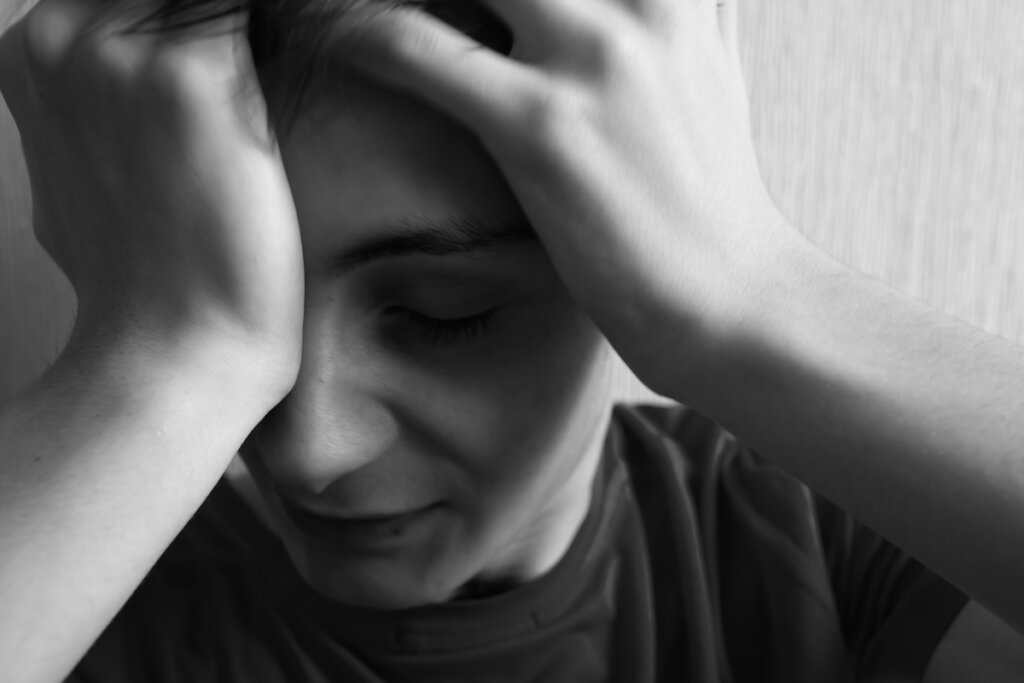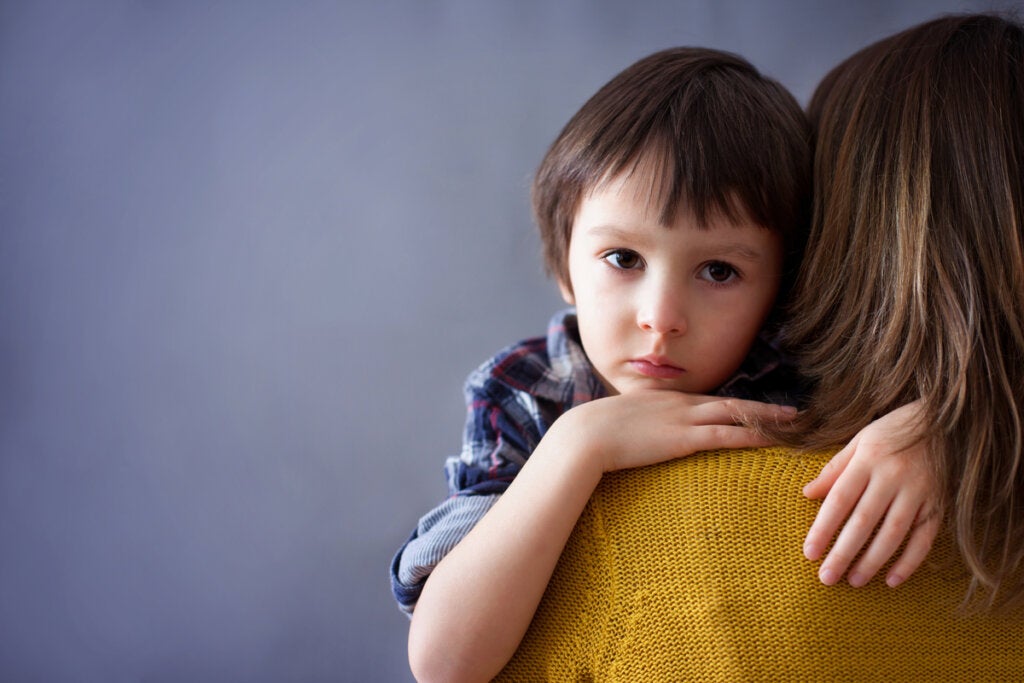Children of mothers with borderline personality disorder (BPD) are at a higher than average risk for certain problems. These include hyperactivity, poor academic results, emotional management difficulties, and low self-esteem, among others. As a matter of fact, the psychosocial impact of this parenting style, that’s frequently based on yelling, poor anger management, and even physical or emotional abuse is often devastating.
There are many experts and organizations that support this clinical group. Indeed, it’s critical that specific therapeutic interventions are developed for mothers with BPD. Factors of the condition, such as impulsivity, emotional reactivity, non-suicidal self-harm, or aggressive behaviors all require specialized attention.
There’s ample evidence to suggest that this personality disorder can be passed from one generation to another. Therefore, it’s important to develop appropriate intervention programs to deal with them. Above all, to optimize the development of children in this kind of family situation.
It’s common for many of the children with this personality disorder to develop disorders such as post-traumatic stress, attention deficits, hyperactivity, and mood problems, etc.
Children of mothers with borderline personality disorder
At present, we know that the demands associated with the mother’s role can aggravate BPD. These women experience greater emotional challenges than their counterparts, and their fears tend to be magnified. Furthermore, they’re faced with a responsibility that they don’t know how to handle. In addition, many of these women approach motherhood alone. Consequently, they have no positive parenting models to draw on.
The University of Sussex (UK) conducted research that claimed that most parents with this clinical condition don’t know how to respond to the needs of their children. They also don’t tend to receive any support. All this ends up generating a series of dynamics that are as complex as they’re detrimental to the psychosocial development of the child. Let’s take a closer look.
Parenting and disorganized attachment
Parenting is a very demanding experience for any mother. Therefore, for women diagnosed with BPD, the experience can be even more stressful.
- On average, they show a lack of emotional response to the needs of their babies. Furthermore, there’s less physical and emotional interaction. For example, cuddles and positive emotional gestures like smiles.
- They clearly have difficulty anticipating or understanding their child’s needs. In fact, they find any demand exhausting and overwhelming.
Children of mothers with BPD usually show the effects of a disorganized attachment. In other words, they suffer from a lack of security from their parents, who are always unpredictable. For example, they may be extremely affectionate at one point and then screaming or being emotionally cold the next.
Often, an adequate psycho-affective adjustment between mother and child doesn’t develop. In fact, the child may experience fear and mistrust towards that parent figure.
The shameful and incongruous “me” (personality development problems)
Much of our identity is built on the basis of interaction with our parents. However, the children of mothers with BPD usually experience rejection, lack of emotional validation, affective ambivalence (loving them one minute and yelling at them the next), and insecurity.
This means that that the child or adolescent doesn’t find a stable reference on which to develop a strong and secure identity. They assume their needs are unimportant. In addition, they feel that their emotions and thoughts are inappropriate. They also feel ashamed of themselves because everything they’ve said and done to date has always been invalidated. In fact, these kinds of people are hungry for emotional recognition and afraid of loneliness. Consequently, they develop an incongruous fractured identity.
Children of mothers with borderline personality disorder are at higher risk of developing psychological problems
The University of Pittsburgh School of Medicine conducted a study in 2012. This study concluded that children of mothers with BPD are a high-risk group for developing psychosocial problems.
There’s evidence of a certain genetic predisposition of developing BPD. However, beyond the genetic, there are more factors with greater relevance when it comes to showing these kinds of psychological problems. These involve the sufferer’s upbringing, education, type of attachment, and their own parental reference model. Indeed, all these factors have an impact on their mental health.
These kinds of children, adolescents, and young adults have a high probability of developing the following conditions:
- Inattention Hyperactivity Disorder (ADHD).
- Difficulty controlling their emotions.
- Aggressive behavior at school.
- Low self-esteem.
- Psychosocial adaptation problems.
- Mood disorders: eg. depression and anxiety.
- Eating disorders.

Psychological trauma in children raised by parents with BPD
Drastic mood swings. Self-destructive behaviors. Bad anger management. Obsessive and even paranoid thoughts. The home governed by a person with BPD is chaotic, and almost always disorganized.
In fact, the children of mothers with BPD grow up in a harmful and painful psycho-affective environment that fragments them at all levels. These psychological fractures drag on for years in the form of trauma. If and when they finally seek psychological help. they’re usually depressed, angry, and, above all, fragmented.
The care that these people receive must always be personalized. Indeed, it needs to be adjusted to their multiple needs. For example, post-traumatic stress, lack of self-esteem, emotional management, lack of social skills, and many of the comorbid disorders mentioned above.
Overcoming these experiences is possible, provided there are adequate resources and specialized professionals available. However, the aftermath won’t ever be forgotten because the shadow of that maternal figure will remain forever in the minds of these young people or older adults. Nevertheless, they can learn to live again.
Surviving Borderline Personality Disorder Episodes
The post Children of Mothers with Borderline Personality Disorder (BPD) appeared first on Exploring your mind.



















Comments